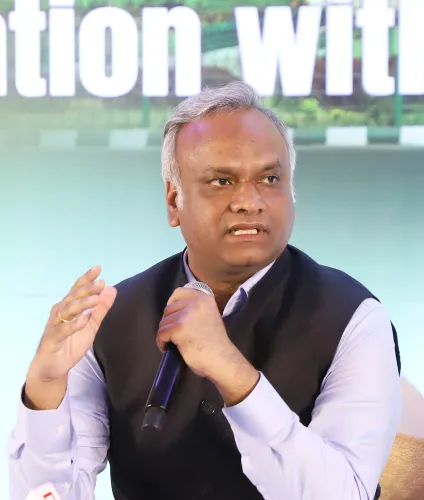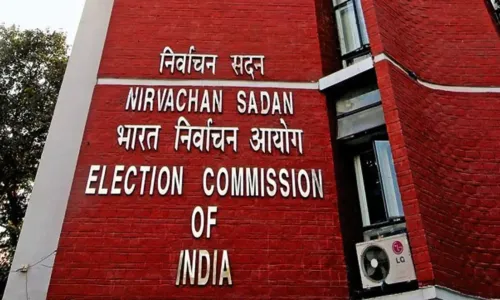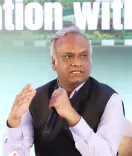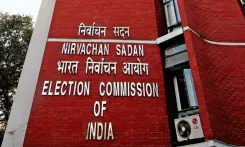What to Expect from Brazilian Vice President's India Visit?
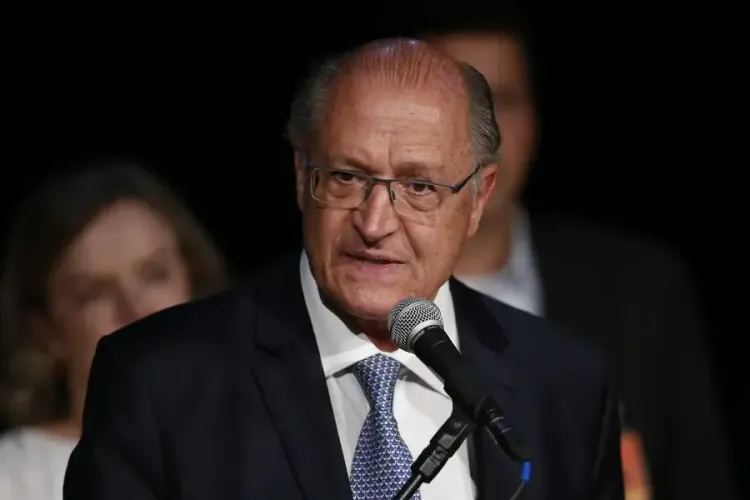
Synopsis
Key Takeaways
- Brazilian Vice President Geraldo Alckmin visits India to strengthen trade relations.
- Aiming for a bilateral trade target of $20 billion in five years.
- Key meetings with Indian officials to discuss strategic partnerships.
- Focus on defence, healthcare, and pharmaceuticals.
- Brazil is India's largest trading partner in South America.
New Delhi, Oct 15 (NationPress) The Brazilian Vice President Geraldo Alckmin is set to embark on a two-day visit to India starting Wednesday to assess bilateral trade and investment opportunities, while also aiming to bolster the multifaceted Strategic Partnership, as announced by the Ministry of External Affairs (MEA).
Alckmin, who also holds the position of Minister of Development, Industry, Trade and Services in Brazil, will convene the inaugural Trade Ministerial Review Meeting with Union Minister of Commerce and Industry Piyush Goyal on Thursday, October 16.
The Brazilian Vice President is anticipated to be joined by Cabinet Ministers, senior officials, and a business delegation.
On Wednesday, Defence Minister Rajnath Singh will meet with Alckmin in New Delhi, with Brazilian Defence Minister Jose Mucio Monteiro Filho also participating in the discussions.
The leaders are expected to evaluate the broad spectrum of relations in the defence sector between the two nations. They will also share insights on mutual interests, including military-to-military and defence industrial collaboration.
During his visit, Alckmin is also on track to meet with Vice President C.P. Radhakrishnan, External Affairs Minister S. Jaishankar, and Minister for Petroleum and Natural Gas Hardeep S. Puri to deliberate on various topics of shared concern.
Additionally, Alckmin is expected to participate in the India-Brazil Business Forum and visit the All India Institute of Ayurveda.
As per the MEA, Brazil stands as India's primary trade partner in South America. During Prime Minister Modi's recent visit to Brazil, the leaders reached an agreement to set up a Ministerial-level Review Mechanism to promote trade and investment, aiming for a bilateral trade target of $20 billion over the next five years.
The MEA highlighted that Alckmin's visit is designed to facilitate a review of bilateral trade and investment, identify new priority sectors, establish a roadmap for achieving the trade target, and further enhance the multifaceted Strategic Partnership.
This visit is particularly significant, coming shortly after India and Brazil outlined a strategy to elevate bilateral trade to $20 billion in five years during the recent seventh India-Brazil Trade Monitoring Mechanism (TMM) meeting held on October 7.
Rajesh Agrawal, Commerce Secretary, and Tatiana Lacerda Prazeres, Secretary of Foreign Trade at Brazil's Ministry of Development, Industry, Trade and Services, co-chaired the meeting.
During the discussions in the national capital, both parties explored a range of topics related to bilateral trade and devised a roadmap for future cooperation.
Topics discussed included a review of bilateral trade and investment ties, expansion of the India-MERCOSUR PTA, market access challenges, visa issues, sectoral partnerships in pharmaceuticals and healthcare, chemicals and petrochemicals, MSME, banking and finance, promotion of industries and internal trade, as well as multilateral issues and other mutual interests.
During Prime Minister Narendra Modi's state visit to Brazil in July 2025, alongside Brazilian President Luiz Inacio Lula da Silva, the leaders set an ambitious target to boost bilateral trade to $20 billion within the next five years.
Brazil ranks as India's largest trading partner in the Latin American and Caribbean regions, with bilateral merchandise trade reaching $12.19 billion during the fiscal year 2024-25.
India's export landscape is undergoing a pivotal transformation. While the US remains a key partner, the remarkable surge in exports to nations such as the Netherlands, UAE, Australia, Saudi Arabia, South Africa, Brazil, and Mexico underscores India's diminishing reliance on a singular market.

